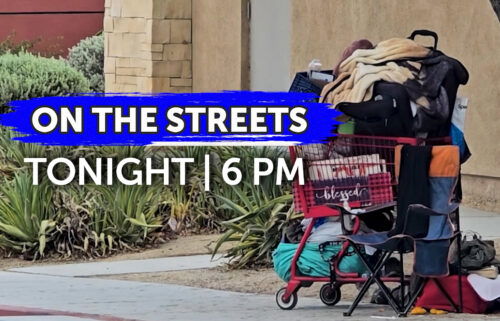93,000 people died of drug overdoses in U.S. in 2020, how local experts are responding
During the 2020 pandemic, drug overdoses rose nearly 30% to a record of 93,000. That's according to preliminary statistics released by the Centers for Disease Control and Prevention. It's the largest single-year increase ever recorded.
"In some ways, it's not surprising after seeing the effects of the pandemic," said Tessa Voss, director at the Betty Ford Center where drug and alcohol treatments take place.
Voss said there are several factors that play into the dramatic increase in deaths.
"The first is the pandemic and just the experience that we've all gone through with the pandemic, you know, isolation and loneliness," said Voss. "Certain recovery homes and treatment centers, hospital based programs have reduced their services, or even closed during the pandemic, and so people have less access to treatment, especially now when they need it."
According to the data, California reported 6,363 cases in 2019 and 9,142 cases in 2020. That's a 43.7% increase. The CDC notes that the numbers were underreported because of incomplete data.
"Substance use disorder and other addiction related issues is a multidisciplinary problem that requires a multidisciplinary approach," said chief epidemiologist for Riverside County, Wendy Hetherington.
Hetherington said Riverside County partners with the Riverside County Sheriff's Department and Riverside University Health System to provide that multidisciplinary approach. Riverside County has been tracking overdose deaths for years now.
"January through April 2020, we reported 72 overdoses that were fentanyl involved, and in 2021, for the same time period 106. That's a 50% increase," said Hetherington.
Riverside County's main target is young people.
"We actually want to target people before they start using substances because that's when you can have the most impact in terms of prevention," said Hetherington.
News Channel 3 also reported on new efforts Riverside County is making to spread awareness of fentanyl abuse.
Voss said creating easy access to treatment is important to helping those struggling with addiction recover.
"There is the impact of the pandemic on treatment resources and mental health resources," said Voss. "We've seen that due to various strains in the community, for certain recovery homes and treatment centers, hospital based programs have reduced their services, or even closed during the pandemic, and so people have less access to treatment, especially now when they need it."
Voss encourages anyone looking for resources for treatment to visit the Betty Ford Center website or to call 1-800-I-DO-CARE.
"I know many of us care and love people who have substance use disorder, and so being a force of healing and hope for them," said Voss. "I feel commitment every day to help those who come to us take one step forward and further away from a potential overdose."
Both health experts are that if you or a loved one is struggling with addiction, treatment is possible and available.




